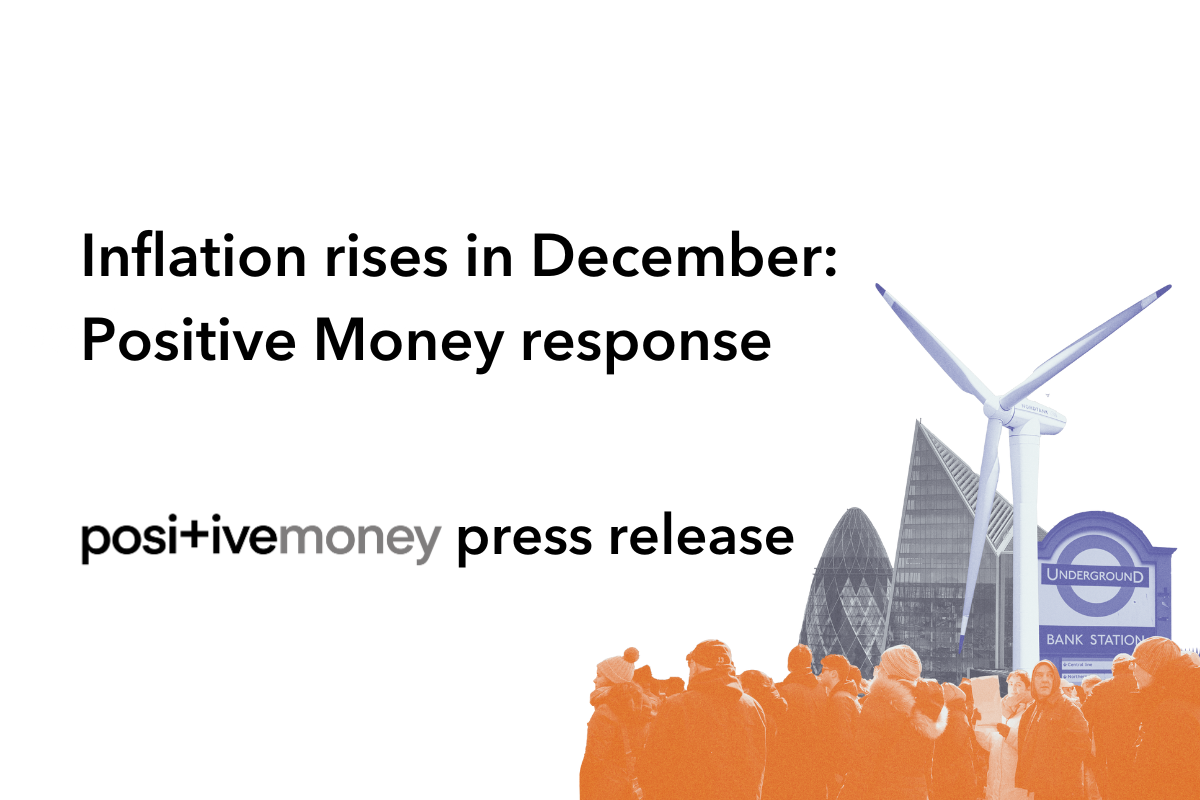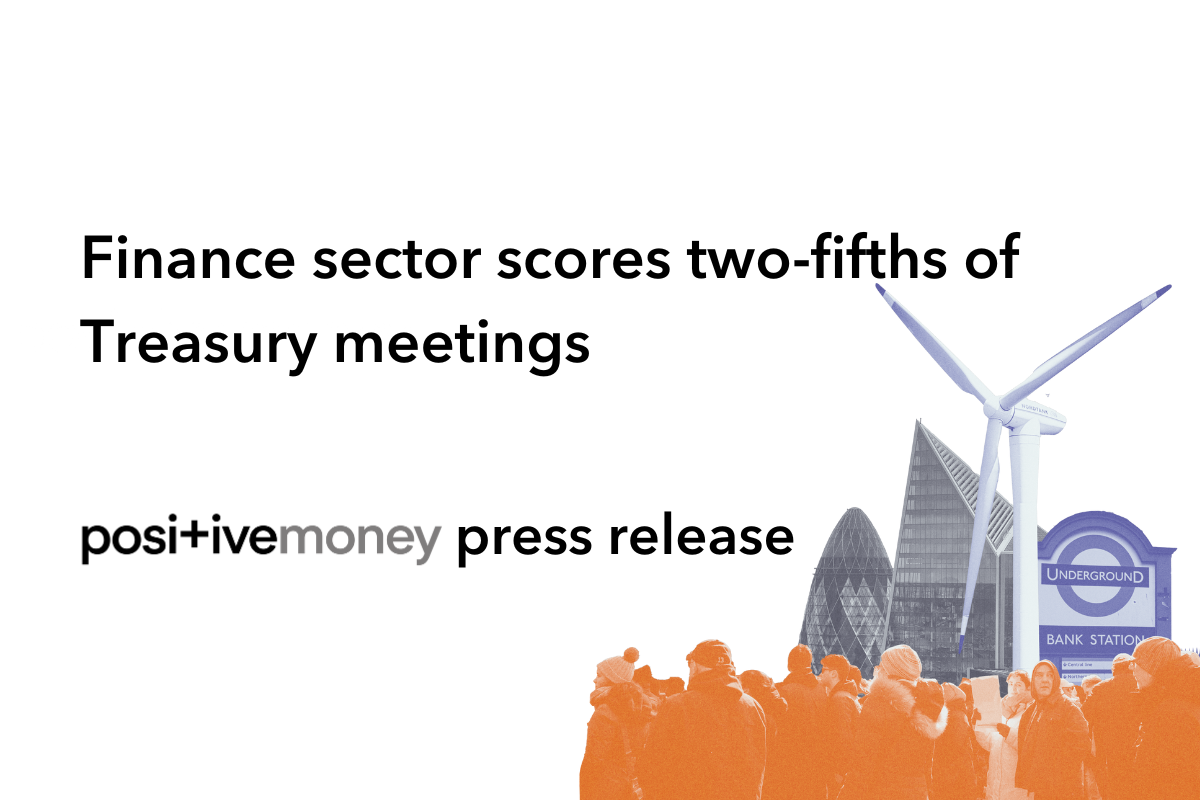
Monetary policy and inequalityUK
21 January 2026
Labour urged to be more resistant to City influence than the previous government, as banks intensify lobbying against higher taxes
London, 5 September 2024 - The financial sector received more facetime with Treasury ministers than any other sector in the first quarter of 2024, according to fresh analysis from research and campaign group Positive Money.
Treasury ministers met 102 times with private finance and its lobbyists, equating to 40.5% of the 252 external meetings they had between January and March this year. This represents a slight uptick on the 39% and 38.3% of meetings which Positive Money found private finance secured in 2023 and 2022, respectively, and a marked increase on the 30.5% the sector scored over 2021 and 2020.
The ministers in question - including Jeremy Hunt, Laura Trott, and Bim Afolami - met to discuss a range of issues, from cryptoassets to the competitiveness of the UK financial sector, whilst the Conservative government still controlled the country’s purse strings. While dominating meetings, banks have managed to secure tax cuts and resist calls for windfall taxes on the record profits they’ve made at the public’s expense from higher interest rates.
Now banks are reportedly intensifying lobbying efforts in response to speculation that the new Labour government is considering higher taxes on banks in the October Budget. Positive Money has previously calculated that a windfall tax on banks at the 35% rate implemented on oil and gas companies would generate £14 billion from just the 2023 profits of the “big four” UK banks: HSBC, Barclays, NatWest and Lloyds.
Positive Money’s Chloe Musto, author of the research, said:
“The last government gave unequal attention to the City of London at the expense of the wider economy; this new government can’t make the same mistake.
“We don’t know how many meetings the finance sector has secured with the current government yet, but if recent appointments to public positions are anything to go by, banks and their lobbyists have ready access to policymakers.
“This government cannot let the finance sector talk it out of fair taxes behind closed doors. A windfall tax on banks would redress the unequal impact higher rates have had on households, who don’t have the luxury of one-on-one time with the Chancellor to recount the impact soaring borrowing costs have had on them.
“New ministers would do well to remember it was a lax approach to the City that ultimately cost the last Labour government the public’s trust.”
Notes:
Positive Money calculates that private financial firms and their representatives (including lobbying groups and those employed by financial firms) made up half or more attendees in 40.5% of Q1 2024 meetings and 39% of 2023 meetings declared by Treasury ministers, using government data: https://www.gov.uk/government/collections/hmt-ministers-meetings-hospitality-gifts-and-overseas-travel
In August 2023, Positive Money calculated that the finance sector had 38.3% of meetings with Treasury ministers in 2022: https://positivemoney.org/press-release/treasury-meetings-dominated-by-finance-as-bank-profits-soar/
In its June 2022 report ‘The Power of Big Finance’, Positive Money calculated that the finance sector had 30.5% of meetings with Treasury ministers in 2020 & 2021: https://positivemoney.org/publications/the-power-of-big-finance/
Banks in Britain are intensifying their lobbying against possible tax hikes in the new Labour government's first budget next month, amid concerns it may tap the sector to boost public finances, senior industry sources told Reuters: https://www.reuters.com/world/uk/uk-banks-brace-possible-tax-hikes-budget-nears-sources-say-2024-09-04/
Simply reversing cuts the Conservative government made to two banking taxes - the Bank Surcharge and Bank Levy - would have raised £3.5 billion from the 2023 profits of the “big four”, according to Positive Money’s analysis: https://www.datocms-assets.com/132494/1717791536-2023-bank-profits-windfall-tax-analysis-1.pdf
In Nov 2023, the TUC calculated cuts to bank taxes were costing the public £29 million a week: https://www.tuc.org.uk/news/tuc-public-purse-losing-least-ps29-million-week-result-huge-tax-break-banks
2023 “big four” bank profits and shareholder payouts analysed here: https://positivemoney.org/update/laughing-all-the-way-to-the-bank-bank-profits-soar-while-taxes-stay-low/
The “big four” banks made £44.3 billion in pre-tax profits in 2023, and they made over £27 billion in the first half of 2024, putting them on track to exceed that amount by the end of this year. Higher profits are coming not just from the greater interest payments ordinary borrowers are paying to banks, but from the increased interest payments the Bank of England pays commercial banks on the reserves they hold with it. Former Bank of England deputy governor Sir Paul Tucker estimated that banks are due to receive £42bn and £33bn in 2023 and 2024 from interest paid on risk-free reserves: https://ifs.org.uk/sites/default/files/2022-10/Quantitative-easing-monetary-policy-implementation-and-the-public-finances-Green-Budget-2022.pdf
Calls for a windfall tax on banks have been voiced by Labour MPs including Angela Eagle, John McDonnell, Clive Lewis, Diane Abbott and Richard Burgon
